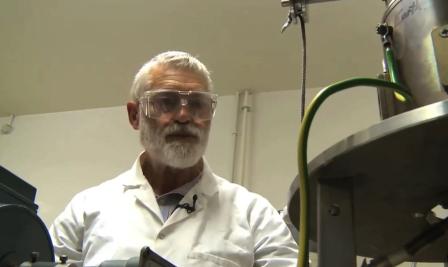ArcActive

Professor John Abrahamson, whose breakthrough has been applied in ArcActive's technology.
A race is on in the rapidly growing start-stop micro-hybrid electric vehicle (HEVs) market for the most suitable battery type.
Micro hybrids (which have a “no idle” function) will increase from their current low levels of market penetration to as many as 34 million batteries per year by 2015, driven by the need for automakers to meet recently mandated emission targets in both the EU and USA.
But the as-yet unanswered question is what batteries will be charging them. So far the battle has been between lead-acid, lithium ion and nickel-metal hydride options, with other contenders on the horizon.
The trouble is that all current battery options are too costly for car manufacturers, who must produce vehicles with hair-thin margins to remain competitive. To date, conventional lead-acid starter batteries haven’t been able to cope with the cycle demands and charge acceptance rates required for micro-hybrids with regenerative braking.
The issue is described as one of the most tension-filled commercial races of our time.
A local entrant in this race is a technology that has emerged from University of Canterbury. ArcActive has developed a lead carbon battery for micro hybrid cars using a continuous system for the production of carbon nanotubes (CNT’s) and activated carbon. The result is a highly transformed carbon fabric that can be used in a number of products.
Performance testing shows the ArcActive Lead Carbon Battery technology has a long life and the cost of the technology is low compared with competing technologies. These are extremely attractive characteristics for the cost sensitive auto industry.
ArcActive has tested the performance of its batteries using new protocols developed by the hybrid car industry and obtained exciting results.
It is now building partnerships with companies that can help with the development and manufacture of the micro hybrid product and has had encouraging initial meetings with international car and battery manufacturers.
